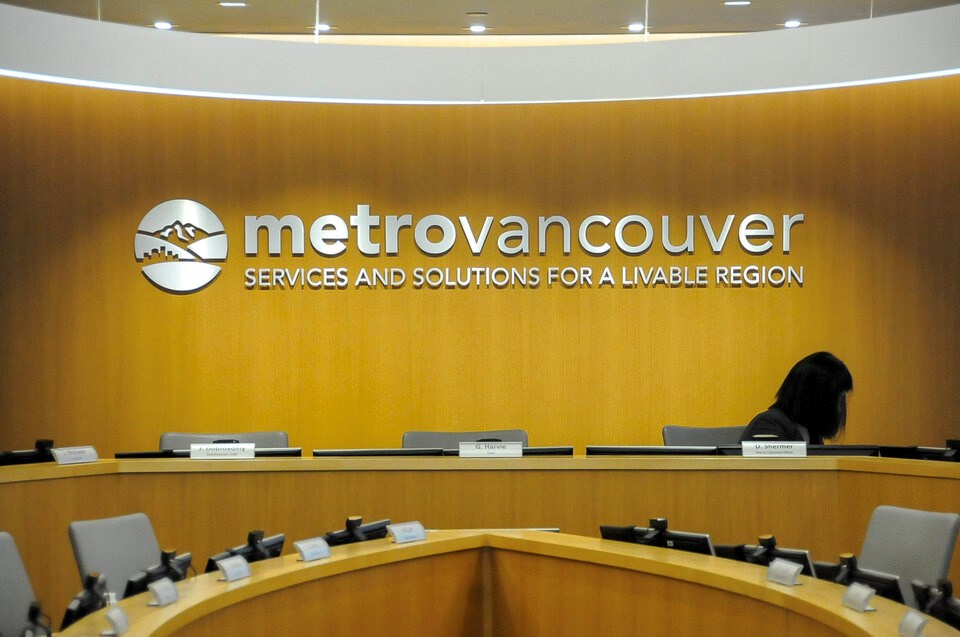Over 52 pages that took a swift four months to produce, the Deloitte Canada management consultancy has confirmed comprehensively what we have seen and heard far too often in recent years: that the board of the Metro Vancouver Regional District is a hot mess.
Unwieldy and overrun by the region’s growth requirements.
Inadequately experienced because of the high turnover rate of the board’s municipal officials at election time.
In need of greater insight and controls into risks and finances of projects and the operation of the organization itself.
Insufficiently governed on integrity, oversight and ethical implementation of its policies.
Conflicted by its board’s dual duties of balancing interests municipally and regionally.
Hobbled by a “culture of heightened mistrust and frustration,” deepened by restraints that come with litigation and confidentiality.
And, while not improperly compensated, overpaid because of inefficiency.
There is more, but really, this is more than enough to launch the makeover that the report suggests—and even more beyond it.
As the organization chews on the study in the days and weeks ahead—the formal tabling Friday will certainly stir discussion—the central problem is that we’re asking the organization to reform itself, when it’s actually time for the province to roll up the sleeves.
This was, after all, the province’s creation almost 60 years ago to get its arms around large tasks and projects in the largest regional district. Various legislation on water, sewage and waste, housing and general issues grant significant powers to impose expenses on homeowners. In simpler times, it worked commendably to build the infrastructure necessary for conveniences we have long taken for granted—a safe water supply, conscientious sewage and waste treatment, measures to contend with housing affordability and attract investment.
But these are no longer simpler times. The population has boomed, taxes have blossomed, and the infrastructure is buckling. Four distinct Metro Vancouver entities oversee about $1.5 billion in annual spending. The civic representatives on the board and its committees are, to be fair, often out of their depth and dependent on staff as seeing-eye dogs. The recent budgeting debacle of the North Shore Wastewater Treatment plant—a more than five-fold increase to $3.8 billion under its noses—suggests the dogs aren’t particularly bloodhounds.
What is clear, the report concludes, is that “Metro Vancouver has outgrown its board governance structure.” The use of the word “outgrown” might sound like a clue to suggest it’s too small and in need of a larger outfit, but mostly the report is about bringing greater effectiveness and a more direct competence into the mix.
The most direct critique of Metro Vancouver arises from a recommendation to create a new committee “to oversee the governance, ethics and integrity of the board’s policies and conduct.” It would be a board of the board, dealing with reviewing policies and committee membership, ensuring a degree of expertise on committees, dealing with integrity issues and complaints, setting renumeration, resolving conflicts of interests, evaluating the board performance and planning for succession.
Inherent in this proposal is a risky supposition that self-regulation, even with a clear mandate, assures taxpayers in what stands to be a permanent state of concern about public finances. Metro Vancouver deals with many of the region’s largest projects, the kind that are prone to escalations in cost and questions about value for money.
As a measure of some reassurance, the Deloitte study suggests the creation of “hybrid” boards that would include non-elected expert directors; it wants longer terms for committee chairs and raises the possibility to consider—without making a full recommendation—of the appointment of a non-elected chair for each of the boards because of the workloads involved.
As for paying the board, the report recommends making meetings more efficient to avoid full-day honoraria, rather than slicing the board membership stipends.
But its weakest work is in contending with culture. Does anyone expect the cessation of clashes between vote-heavy Vancouver and Surrey with smaller communities, or the skepticism board members and staff have of each other, when there are such economic and political consequences of its activities? About all the report can suggest is that Metro Vancouver “find ways” to make meetings more efficient, that it tries to reduce the number of meetings, “while improving the level of respect and trust within itself and between staff and other stakeholders.”
It does so, too, while being silent on any suggestion that there be actual elections of regional government, as there are in a handful of Ontario jurisdictions, to provide greater transparency and direct accountability. Nor does the study call for a more serious study—say, a commission to reform the roles of the region, the province and the local governments.
Indeed, the prescriptions keep the province mostly on the sidelines like a soccer parent, rather than on the pitch as players. If it doesn’t remedy what ails the organization, it’s hard to believe the province can credibly remain mute and say it’s someone else’s problem to solve.
Kirk LaPointe is a Lodestar Media columnist with an extensive background in journalism. He is vice-president in the office of the chair at Fulmer & Co.




